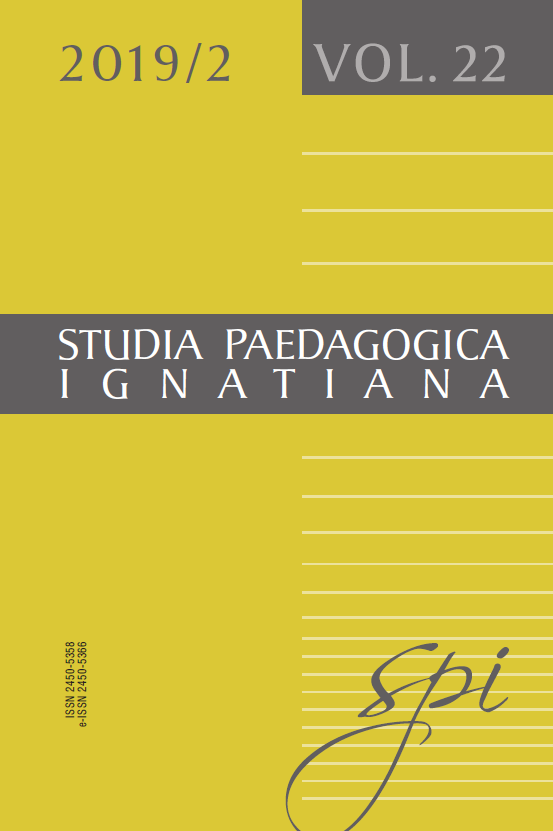The Research Methodology in Social Rehabilta-tion
DOI:
https://doi.org/10.12775/19994Keywords
metodologia, resocjalizacja, pedagogika resocjalizacyjnaAbstract
Małgorzata H. Kowalczyk,
Małgorzata Fopka-Kowalczyk,
Krzysztof Rubacha,
Uwarunkowania i wielopłaszczyznowość badań nad resocjalizacją. Podstawy teoretyczne i metodologiczne,
Wydawnictwo Naukowe Uniwersytetu Mikołaja Kopernika, Toruń 2017, ss. 240.
References
Barczykowska A., Dzieżyńska-Breś S., Muskała M., Systemy resocjalizacji Anglii i Stanów Zjednoczonych Ameryki, Poznań 2015.
Chojecka J., Kobieta w więzieniu i jej resocjalizacja – zamierzenia a rzeczywistość, Poznań 2013.
Jarosz E., Wybrane obszary diagnozowania pedagogicznego, Katowice 2001.
Jarosz E., Wysocka E., Diagnoza psychopedagogiczna. Podstawowe problemy i rozwiązania, Warszawa 2006.
Heine M., Efektywność resocjalizacji jako czynnik determinujący podejmowanie oddziaływań resocjalizacyjnych, „Zeszyty Wydziału Humanistycznego KPSW w Jeleniej Górze” 2013, nr 8, s. 213.
Kowalczyk M.H., Fopka-Kowalczyk M., Rubacha K., Uwarunkowania i wielopłaszczyznowość badań nad resocjalizacją. Podstawy teoretyczne i metodologiczne, Toruń 2017, s. 79.
Muskała M., Odstąpienie od przestępczości w teorii i praktyce resocjalizacyjnej, Poznań 2016.
Pilch T., Bauman T., Zasady badań pedagogicznych, Warszawa 1998.
Pospiszyl K., Resocjalizacja. Teoretyczne podstawy i przykłady programów oddziaływań, Warszawa 1998.
Pytka L., Pedagogika resocjalizacyjna. Wybrane zagadnienia teoretyczne, diagnostyczne i metodyczne, Warszawa 2005.
Szczepanik R., Stawanie się recydywistą. Kariery instytucjonalne osób powracających do przestępczości, Łódź 2015.
Sztuka M., Pedagodzy i aktuariusze. (Odpowiedź na artykuł B. Stańdo-Kaweckiej, O koncepcji resocjalizacji w polskiej literaturze naukowej polemicz-nie, „Probacja” 2010, nr 1), „Probacja” 2011, nr 1, s. 129‒144.
Urban B., Zachowania dewiacyjne w założeniach symbolicznego interakcjonizmu. Implikacje dla praktyki resocjalizacyjnej, w: Resocjalizacja, t. 1, red. B. Urban, J.M. Stanik, Warszawa 2007, s. 99.
Wysocka E., Diagnoza w resocjalizacji, Warszawa 2009.
Downloads
Published
How to Cite
Issue
Section
License
By submitting an article, the author declares that:
they are the author of the article (hereinafter referred to as the Work) and:
- is entitled to exclusive and unlimited copyright to the Work,
- is entitled to dispose of the copyrights to the Work.
The Author grants the Jesuit University Ignatianum in Cracow a free, non-exclusive, territorially unlimited license to use the Work in the following fields of exploitation:
- publishing the Work in paper, digital or magnetic form;
- multiplying the work by any method, without limiting the number of editions or copies;
- distribution of the work and its copies in any form, including marketing, sales, lending, and lease;
- placing the work in a computer memory;
- distribution of the work in information networks, including the Internet;
- public performance, exhibition, display, reproduction, broadcasting and re-broadcasting, as well as making the Work available to the public in such a manner that everyone could have access to it at a time and place chosen by themselves;
- within the scope of dependent rights to the Work, covering, in particular, the right to make necessary changes to the Work, resulting from editorial and methodical preparation, as well as to make translations of the Work into other languages.
The license right shall be transferred the moment of transfer of the Work to the Jesuit University Ignatianum in Cracow. The Jesuit University Ignatianum in Cracow is entitled to grant sub-licenses to the Work in terms of the right granted. The license shall be limited in time for a period of 15 years from the date it is granted.
Stats
Number of views and downloads: 1017
Number of citations: 0



